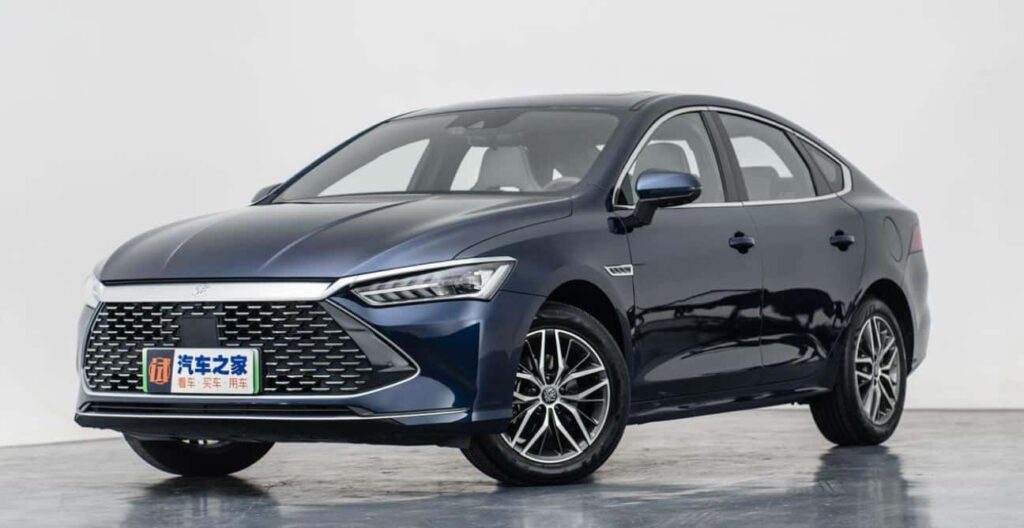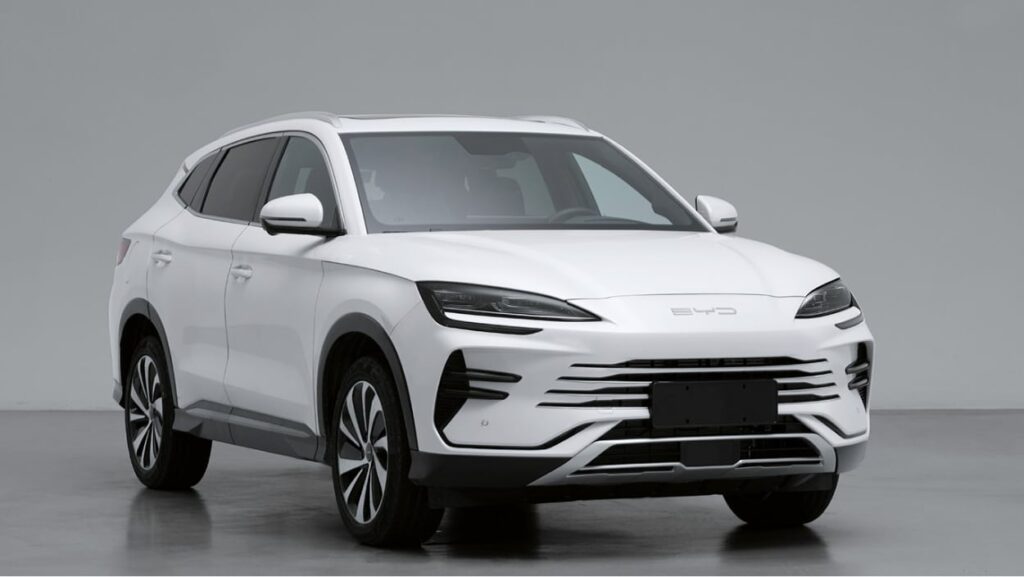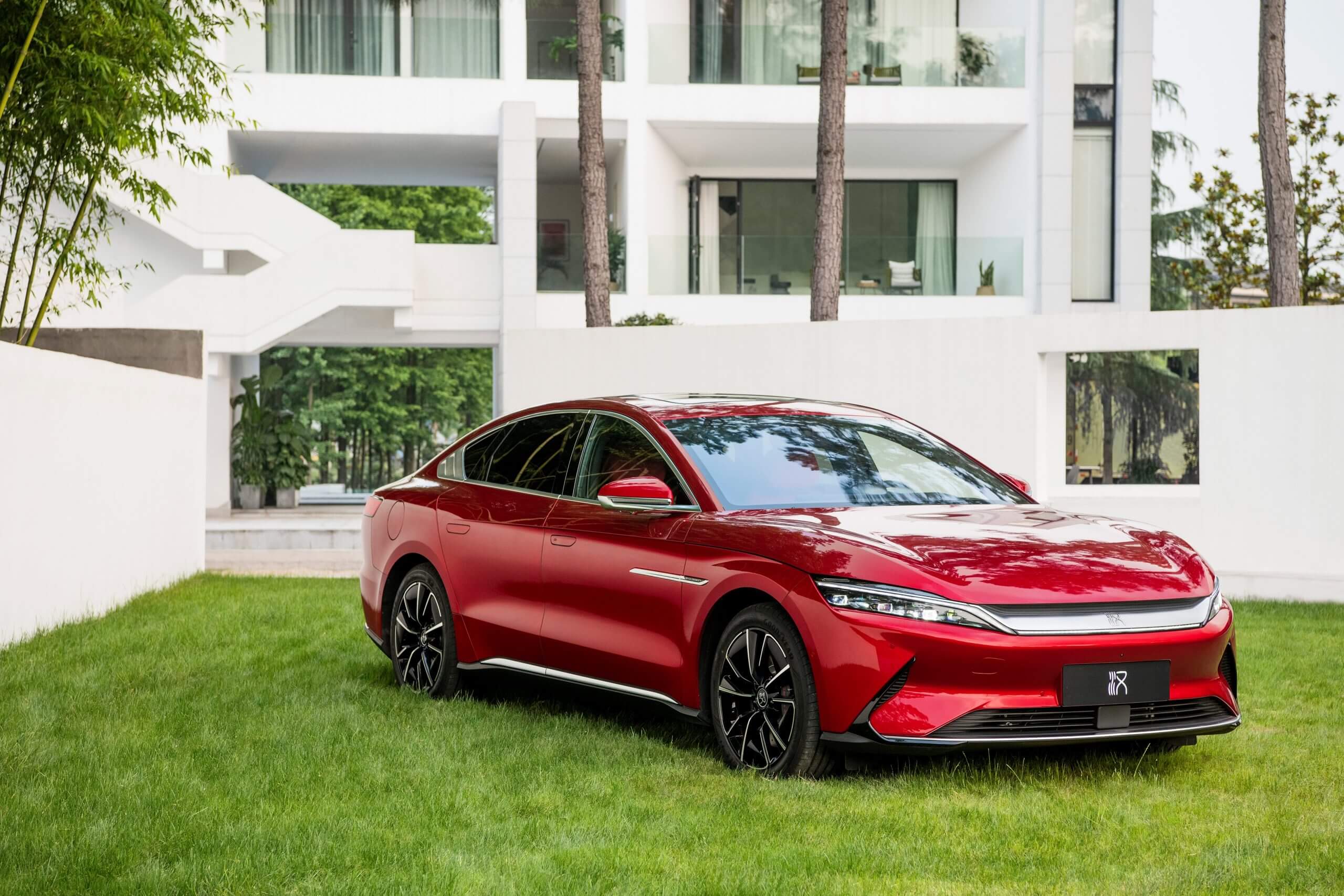BYD maintained The December’s result is 38,800 higher than the November’s record (301,378), which is quite spectacular. It was also the eighth consecutive monthly record, underlying how consistent BYD’s expansion is. Having said that, the overwhelming majority of BYD sales still happened in China, while exports account for about 10% of its total results.
One of the most interesting things is that BYD was able to significantly increase its all-electric car sales by 70% year-over-year to 190,754. That’s a new record and 56% of the brand’s total passenger car sales.
The Chinese corporate giant BYD said Monday that it sold three million battery-powered cars in 2023, its most ever, capping a turbulent year for China’s electric vehicle industry.
Even as sales surged, heavy competition and a sustained price war took a financial toll on many automakers.
But BYD last year sold 1.6 million fully electric vehicles and another 1.4 million hybrids, which are powered by both batteries and gasoline. Together that is a 62 percent increase over 2022. BYD is also making money, tripling its profit to $1.5 billion in the first half of last year.
BYD, which faces prohibitively high tariffs in the U.S. market, sells most of its cars in China but is expanding globally, particularly in Europe.
It announced in December that it would build an assembly plant in Hungary, its first production facility for battery-powered cars in Europe. In Germany, the seat of European auto making, it introduced three models of electric cars at the start of 2023. BYD has opened dealerships in Germany, Norway and Sweden.
Companies wanting a slice of China’s fast-growing electric car market have flooded the space with new models. Chinese smartphone maker Xiaomi last week detailed its plans to launch an EV to compete with Porsche and Tesla.
Li Auto, whose monthly deliveries have surged to record highs, is set to launch its first purely battery-powered vehicle, MEGA, on March 1 and begin deliveries later that month, according to an announcement Sunday. That’s slightly later than initial projections for late February deliveries.
The startup has so far seen success with cars that come with a fuel tank to charge the battery and extend driving range. Li Auto said it delivered more than 50,000 cars in December for a total of 376,030 in 2023, a 182% year on year increase.
the 007 electric sedan. Zeekr said its overall deliveries rose by 65% in 2023 to 118,685.
That total figure is still lower than Nio’s, which said it delivered 160,038 cars in 2023, up by nearly 31% year on year. The company delivered just over 18,000 cars in December.
Among the many other electric car brands in China, Nezha reported deliveries of 127,496 cars in 2023.
Aion, a spinoff of state-owned GAC Motor, said it sold more than 480,000 cars in 2023, up 77% year on year.
BYD has had a lot of help from the Chinese government and even Warren Buffett, whose Berkshire Hathaway has been a key investor.
BYD’S Top 3 best selling cars:
1). Qin Plus :-
The Qin Plus, BYD’s bestseller — the top-ranked across all new energy vehicles in China — sold nearly 400 more units than Tesla’s Model Y in the six months ending in November.
The compact car comes in hybrid and battery-only versions. It’s part of BYD’s legacy series of cars named after Chinese dynasties. Qin Shihuang was the first leader of a unified China and known for his terracotta warrior burial site.
Price: 99,800 yuan to 176,800 yuan ($13,942 to $24,700)
Range: 420 km to 610 km (261 miles to 379 miles)

2). Seagull :-
The Seagull is a budget-priced boxy hatchback that BYD launched less than a year ago in spring 2023. The battery-only car comes in neon yellow-green, peach, black and white.
Price: 73,800 yuan to 89,800 yuan ($10,310 to $12,545)
Range: 305 km to 405 km (189 miles to 251 miles)

3). Song Plus NEV :-
In third place among BYD bestsellers is the Song Plus, a compact SUV that comes in hybrid and battery-only versions.
Price: 159,800 yuan to 209,800 yuan ($22,325 to $29,310)
Range: 520 km to 605 km (323 miles to 375 miles).



